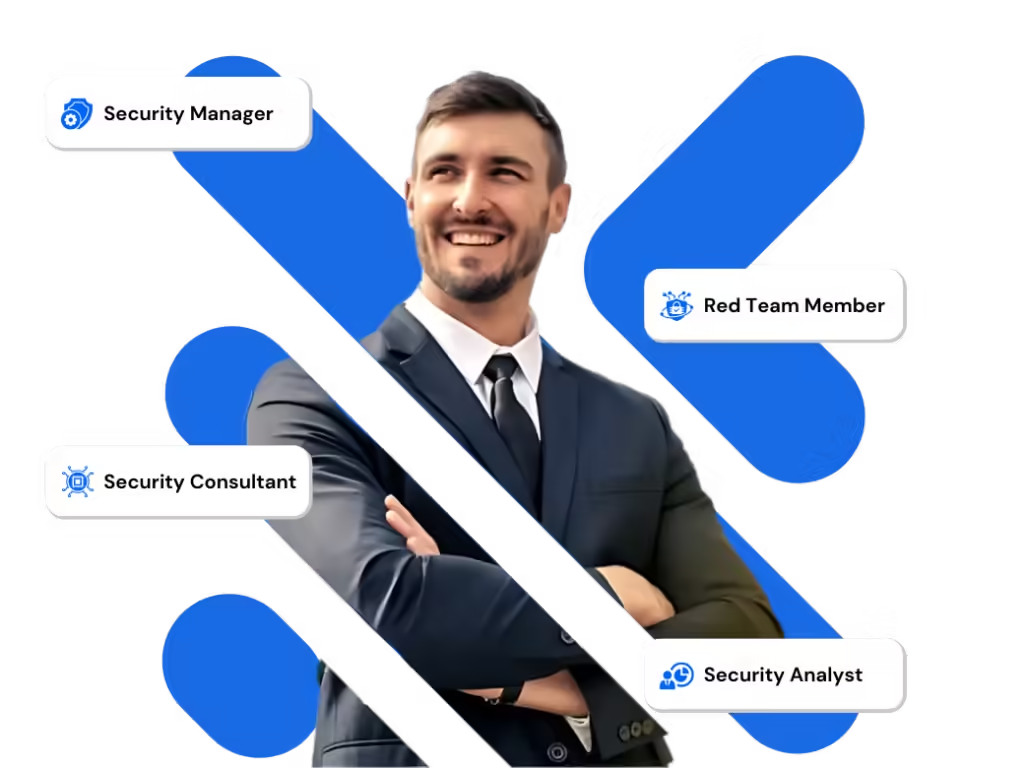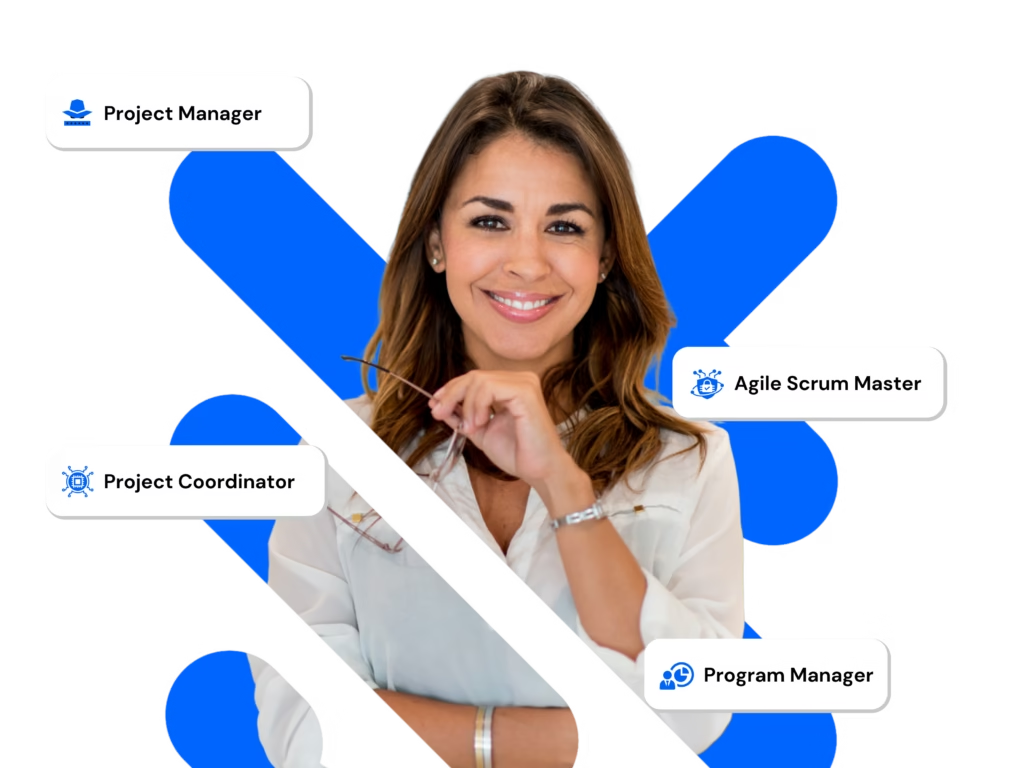In the ever-changing digital world of today, cloud security has emerged as a top concern for businesses of all kinds. Protecting data, apps, and workloads from cyber threats is crucial as more and more firms use cloud environments. Cloud security products give multi-cloud and hybrid infrastructures the visibility, control, and automation they need to identify vulnerabilities, stop configuration errors, and enforce compliance. These tools assist organizations in improving their security posture while preserving operational effectiveness by combining threat intelligence, real-time monitoring, and workload protection.
Table of Contents
What is Cloud Security?
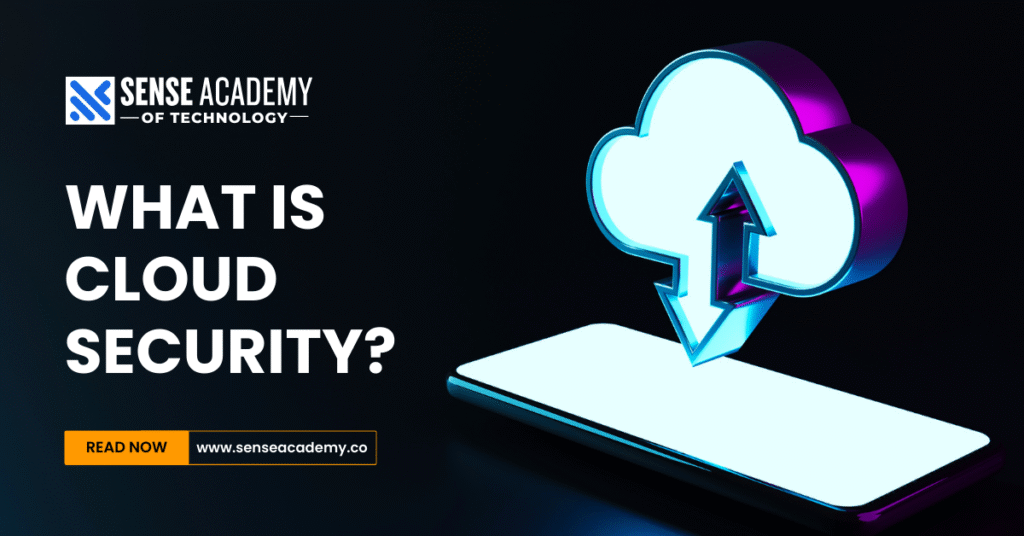
The term “cloud security” describes the collection of tools, regulations, and procedures intended to safeguard workloads, data, and apps housed in cloud environments. It protects public, private, and hybrid clouds from cyberattacks, data breaches, illegal access, and configuration errors. Real-time monitoring, threat detection, vulnerability management, encryption, identity and access management, and compliance enforcement are all components of cloud security. Cloud security guarantees that businesses can safely use cloud computing resources while preserving data integrity, confidentiality, and operational effectiveness by offering visibility, control, and automatic protection.
Tools for Protecting Cloud Environments
Organizations depend on advanced cloud security systems that offer visibility, threat detection, compliance enforcement, and workload protection across multi-cloud and hybrid environments in order to adequately safeguard cloud assets. These solutions improve overall security posture, identify vulnerabilities, and stop misconfigurations. The top ten cloud security tools are highlighted in the list below; they provide extensive features to protect workloads, data, and apps in today’s dynamic cloud infrastructures.
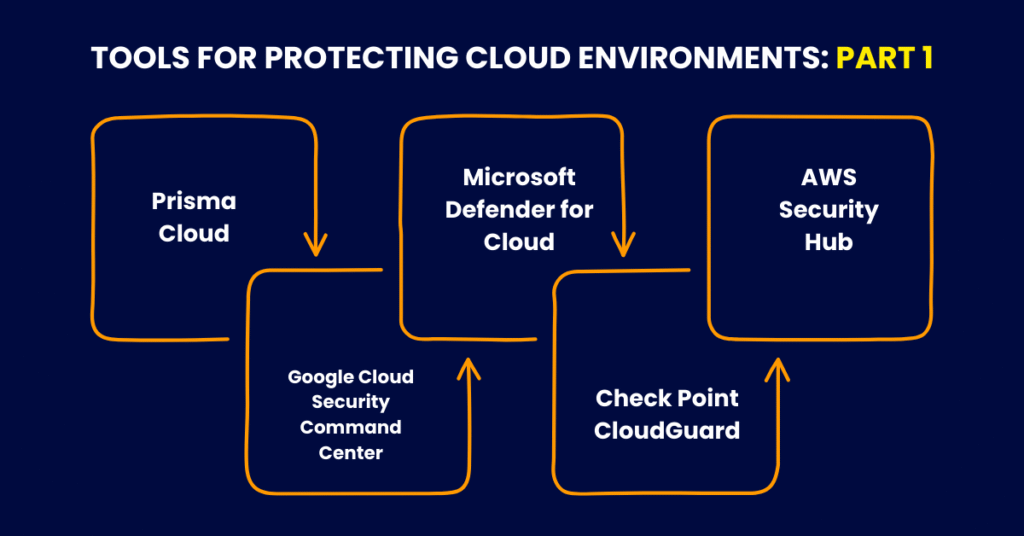
1.Prisma Cloud
One of the most complete cloud security solutions is Palo Alto Networks’ Prisma Cloud, which has features for CSPM, CWPP, and CNAPP. It assists businesses in keeping a watch on cloud workloads, spotting setup errors, enforcing compliance guidelines, and safeguarding apps in hybrid and multi-cloud settings. Prisma Cloud offers granular infrastructure visibility, vulnerability management, and real-time threat detection. It is a flexible option for DevSecOps teams because it supports virtual machine, serverless, and container security. Prisma Cloud guarantees that enterprises may improve their security posture while preserving operational effectiveness in dynamic cloud settings by providing comprehensive integration with cloud providers.
2.Microsoft Defender for Cloud
For workloads on Azure, AWS, and Google Cloud, Microsoft Defender for Cloud provides strong protection. It offers compliance monitoring, security posture management, and sophisticated threat detection. Defender provides comprehensive protection by effortlessly integrating with Microsoft 365 and other enterprise solutions. Among its features are vulnerability evaluations, just-in-time virtual machine access, and workload protection for servers, containers, databases, and storage. Detailed suggestions to correct configuration errors and improve security settings are beneficial to organizations. For increased visibility, the product also integrates with SIEM solutions like Sentinel. Its natural cloud integration and scalability aid in the efficient security of hybrid and multi-cloud setups.
3.AWS Security Hub
AWS Security Hub offers a centralized perspective of cloud security by combining and automating security tests across AWS accounts. To make monitoring easier, it interfaces with a number of AWS services, including GuardDuty, Inspector, Macie, and third-party applications. Security Hub regularly examines setups for errors against compliance frameworks, including GDPR, PCI DSS, and CIS. It helps teams react swiftly to risks by prioritizing notifications using automated procedures. Users can monitor trends, spot gaps, and stay compliant with its dashboard. Security Hub guarantees enhanced visibility, better governance, and proactive vulnerability detection for enterprises with significant AWS investments.
4.Google Cloud Security Command Center (SSC)
By integrating and automating security testing across AWS accounts, AWS Security Hub provides a centralized view of cloud security. It connects with several AWS services, such as GuardDuty, Inspector, Macie, and third-party apps, to facilitate monitoring. Security Hub routinely checks configurations for mistakes in relation to compliance standards such as CIS, GDPR, and PCI DSS. By employing automated processes to prioritize notifications, it enables teams to respond quickly to threats. With its dashboard, users can keep an eye on trends, identify gaps, and maintain compliance. For businesses with large AWS investments, Security Hub ensures improved visibility, improved governance, and proactive vulnerability detection.
5.Check Point CloudGuard
Unified security for public, private, and hybrid cloud settings is provided by Check Point CloudGuard. It provides network security, threat intelligence, and identity protection together with support for CSPM, CWPP, and compliance automation. To stop configuration errors and policy infractions, CloudGuard makes it possible to monitor cloud configurations in real time. In order to provide comprehensive protection, it also safeguards serverless functions, workloads, and APIs. Check Point’s ThreatCloud intelligence-powered enhanced threat protection is one of its main advantages. Security automation and DevOps workflows are made possible by CloudGuard’s seamless integration with top cloud providers. CloudGuard is a reliable option for businesses in a variety of sectors since it offers visibility, compliance assistance, and workload protection.
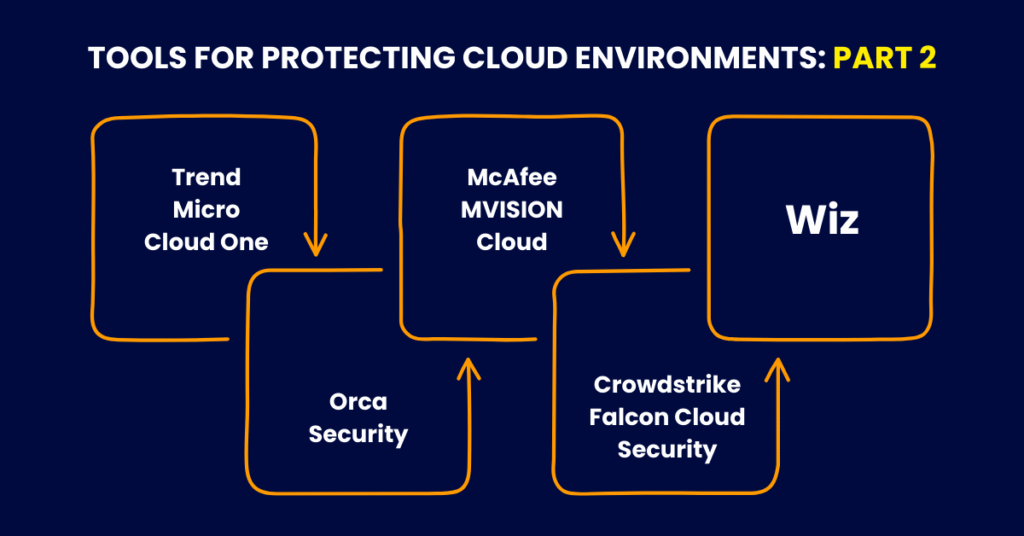
6.Trend Micro Cloud One
A complete cloud security platform designed for hybrid and multi-cloud settings is Trend Micro Cloud One. With capabilities like malware protection, intrusion detection, and compliance monitoring, it provides protection for cloud storage, workloads, and containers. Cloud One ensures secure deployment pipelines by offering vulnerability scanning for infrastructure and applications. Containerized workloads are protected against real-time threats by its runtime protection. In order to find configuration errors prior to deployment, the program also facilitates IaC scanning. Trend Micro assists teams in implementing a shift-left security strategy by integrating with popular cloud platforms and DevOps technologies. Cloud One’s scalable design improves security effectiveness and cloud visibility.
7.McAfee MVISION Cloud
One of the top Cloud Access Security Brokers (CASBs) that assists businesses in safeguarding data and apps across SaaS, PaaS, and IaaS is McAfee MVISION Cloud. It offers real-time insight into cloud usage, identifying dangerous apps and shadow IT. Data loss prevention (DLP), compliance, and threat protection policies are implemented by MVISION Cloud. Controlling access, keeping track of user activity, and encrypting critical data are its strong points. It detects irregularities fast by incorporating AI-driven threat detection. Additionally, MVISION interfaces with enterprise systems to guarantee uniform enforcement across cloud apps and endpoints. It is frequently utilized by businesses implementing extensive SaaS platforms.
8.Wiz
Wiz, a quickly expanding cloud security product, is well-known for its agentless approach. Without the need for agents or intricate settings, it checks cloud environments for errors, vulnerabilities, and unauthorized access. Wiz offers full-stack visibility across multi-cloud environments, encompassing identities, workloads, and containers. By prioritizing risks according to exposure paths, it enables businesses to start by addressing the most pressing problems. Early security checks in the development lifecycle are made possible by Wiz’s simple integration with CI/CD pipelines. Teams may see their cloud risk posture in real time thanks to its user-friendly dashboards. Wiz is well-liked by businesses looking for security that is quick, scalable, and easy.
9.Orca Security
Another agentless cloud security technology that offers comprehensive insight into cloud setups and workloads is Orca Security. Without affecting performance, it checks cloud accounts for identity threats, malware, configuration errors, and vulnerabilities. Complete coverage across workloads, containers, and serverless environments is provided by Orca’s SideScanning technology. By mapping exposure paths, it frames risks and enables teams to remediate efficiently. Additionally, the platform offers compliance standards, guaranteeing that businesses adhere to legal obligations. Orca is appealing to fast-moving businesses due to its simplicity of implementation and low operating costs. Orca provides robust security without complexity by providing unified protection across CSPM, CWPP, and vulnerability management.
10.Crowdstrike Falcon Cloud Security
With robust threat intelligence and endpoint detection capabilities, CrowdStrike Falcon Cloud Security protects cloud workloads. It offers immediate knowledge of Kubernetes systems, containers, and cloud workloads. Threats, including malware, ransomware, and zero-day attacks, are identified and stopped by Falcon. Workloads are protected against changing threats due to integrated runtime protection. Additionally, the platform provides identity protection, compliance checks, and vulnerability management. Its strength is in providing an integrated defense strategy by fusing cloud-native security with CrowdStrike’s well-known EDR/XDR capabilities. For enterprises adopting hybrid and multi-cloud strategies, Falcon offers scalable protection through seamless integration into DevOps workflows.
Conclusion
In a time when cloud use is growing quickly, protecting cloud environments is now necessary rather than optional. Organizations can benefit from visibility, threat detection, compliance enforcement, and workload protection across multi-cloud and hybrid infrastructures with the help of the best cloud security tools mentioned above. Businesses can increase their overall security posture, stop misconfigurations, and proactively uncover vulnerabilities by utilizing these solutions. Organizations may embrace cloud technology with confidence without sacrificing security by putting in place the proper set of cloud security technologies, which guarantee operational efficiency while protecting vital data and apps.
FAQ’s
What is the main objective of tools for cloud security?
Through the detection and mitigation of cyberthreats, vulnerabilities, and misconfigurations, cloud security technologies aim to protect cloud infrastructures. They offer policy enforcement, workload protection, and real-time monitoring for hybrid and multi-cloud systems. These technologies assist enterprises in preventing data loss, unauthorized access, and operational disruptions by providing features including threat information, automatic compliance checks, and continuous visibility. Businesses can embrace cloud technologies with confidence and lower their risk of security breaches by putting cloud security measures into place, which guarantee that workloads, data, and apps are safe while preserving efficiency.
How do businesses select the best cloud security tools?
The organization’s cloud platforms, security demands, and coverage requirements—such as CSPM, CWPP, and CNAPP—must all be considered when choosing the best cloud security technology. Scalability, vendor support, ease of implementation, and compatibility with current systems are further factors to take into account. Additionally, tools need to be in line with the organization’s key compliance frameworks. Evaluating the solution’s automation features, reporting capabilities, and threat detection capabilities guarantees that it can satisfy operational requirements. In the end, businesses need to choose a solution that strikes a balance between security effectiveness and usability so that teams can efficiently monitor, safeguard, and manage cloud workloads without interfering with daily operations.
Can cloud security tools help small businesses?
Yes, cloud security products are very beneficial to small organizations. Even small IT teams can enforce regulations, identify dangers, and have real-time visibility into cloud assets. Tools lessen dependency on big security teams by offering automated compliance checks, vulnerability management, and workload protection. Additionally, cloud security products are cost-effective since they grow to meet company needs. These products offer enterprise-grade security to small enterprises using SaaS, PaaS, or multi-cloud environments without requiring a large infrastructure. Small organizations can reduce risks in increasingly complex cloud settings, avoid breaches, preserve customer trust, and foster growth by implementing cloud security solutions early.

